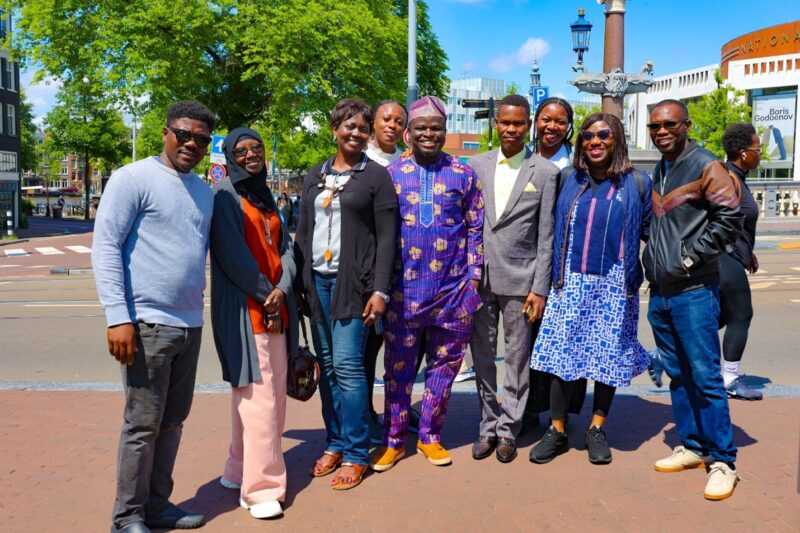Marked October 11 every year since 2012, the International Day of the Girlchild highlights and addresses the needs and challenges of the girlchild while promoting girls’ empowerment and the fulfilment of their human rights around the globe. The theme for the year (2019) is Girlforce: Unscripted and Unstoppable.
On a day as this, the Wole Soyinka Centre for Investigative Journalism (WSCIJ) joins the rest of the world to call attention to the multifarious issues affecting about 1.1 billion girlchildren in Nigeria and across the globe. Some of the issues include: low primary school completion rates (estimated at below 50 per cent in most poor countries), pregnancy‐ and childbirth‐related complications (which are the number‐one killers of girls aged 15 to 19 worldwide), girlchild marriage (estimated at 38 per cent for girls below age 18), rape (to which 25 per cent of girls below the age of 18 have fallen victim), and trafficking (for which alongside women, girls constitute up 80 per cent of the estimated 800,000 people trafficked across national borders annually).
On a sad note, however, many of these issues go unreported. WSCIJ has drawn particular attention to the issues of access and abuse as they affect girls and women in Nigeria through its ReportWomen! Programme initiated in 2014. Under the Report Women project, WSCIJ has trained over 474 reporters across the country and enabled the execution of 65 girlchild/women-focused stories targeted for maximum impact. The WSCIJ has also produced a documentary – The untold stories of girls and women in Nigeria, thereby contributing to bettering the existential realities of girls and women.
Life of girls in destitute camp, is one of the stories implemented under the Report Women project. The story by Funke Fayemi, a 2017 fellow of the Report Women! Female Reporters Leadership Programme (FRLP) casts light on the plight of girls at Okobaba in Ebute-Meta, Lagos, which is house to about ten thousand people, 40 per cent of whom are girls and women. Many of the girls do not go to school, but beg for alms and stay at home, taking care of their physically challenged parents.
The untold story of how 13-yr-old Ochanya died while seeking an education highlights how government’s neglect of basic education contributes to child molestation in Nigeria. Using late Ochanya as a case study, 2018 fellow, Goodness Adaoyiche, another Report Women! FRLP fellow, focus on the predicament of young rural girls seeking quality education outside their place of habitual residence. With the story and advocacy, Goodness was able to push for the renovation of the only school in the community late Ochanya lived with her parents to stop other girls like Ochanya from going through the same ordeals she went through in search for quality education.
Reintegrating the Girl-child into the School System by Funmi Ogundare, a 2018 fellow, delved into the issue of out-of-school girls. The story revealed that rape and stigmatisation, poverty, early marriage, ethnicity, as well as lack of security and safety measures in schools have direct association with girl-child education. The story is a call to action for parents as well as the government to reintegrate girls who are out of school into the school system.
‘Period Poverty’, the common phrase that explains the despicable state some teenage girls and even adults find themselves during their monthly menstrual cycle, was deeply looked into by 2018 fellow, Queen Esther Iroanusi in her story project titled “With Government Failing, Nigerian Youth Take Over Fight Against Menstrual Period Poverty”. The story uncovers the plight of teenage girls who cannot afford sanitary towels, hence resorted to unhygienic options. The story which has since gained public attention, brings to fore government’s refusal to end taxes on sanitary products.
Secret-Cult-Gangs – The Disturbing Rise of Female Secondary School Members in Delta, by 2018 fellow, Ejiro Umukoro, revealed how secondary school girls in Delta State were being aggressively recruited by male secret-cult-gangs for sex, money and power. The story spoke to pertinent gender issues around female secret cult gangs and activities like violence against girls, sexually transmitted diseases, physical abuse, and substance dependencies, among many others.
Sexual assault of minors in Kaduna State was the focus of 2018 fellow, Joke Fayemi’s audio documentary “Lost Innocence: A Story of Child Defilement in Kaduna”, which calls for the prosecution of perpetrators and the provision of help to victims.
The highlighted stories and many others enabled by the Wole Soyinka Centre for Investigative Journalism under the ReportWomen! programme, speak to the need to avail the girl-child equal opportunities as their male counterparts, enforce extant legal protection for the girlchild, as well as encourage their completion of school, while also reintegrating those who have dropped out.
As a gender sensitive organisation, WSCIJ consider the girlchild a force to reckon with, and will continue to play its part in helping the media in Nigeria fulfill its watchdog and agenda setting roles, particularly by keeping the issues affecting girls and women on the front burner.







